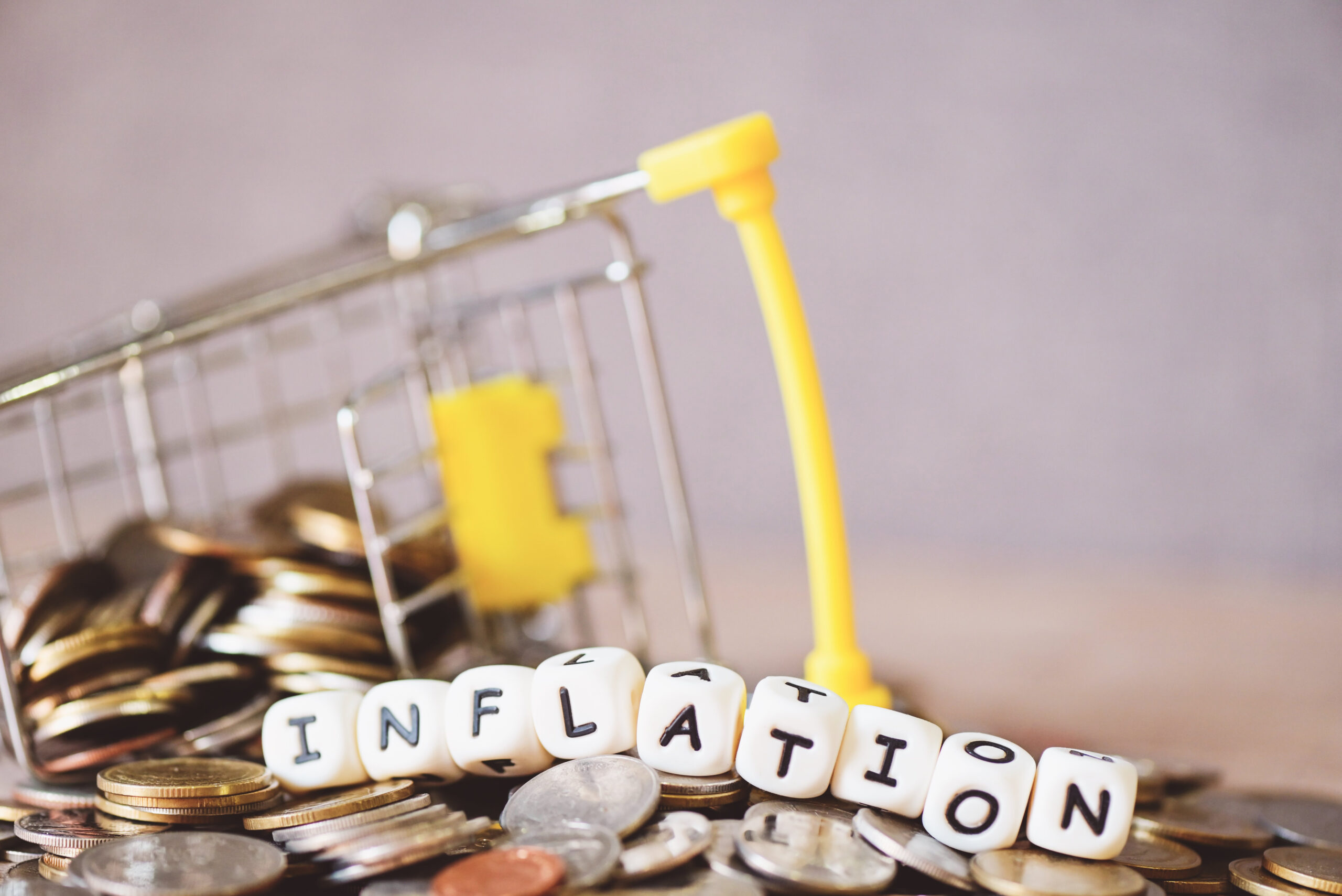The importance of saving money is more valuable than it ever has been. With inflation, everything is much more expensive than a few years ago. People who are financially struggling as is, find it even more impossible to live day-to-day, let alone save for a future.
Remember when you could grab a coffee and a pastry without breaking the bank? Those days seem like a distant memory as inflation squeezes our wallets.
Groceries, gas, and everything else keep getting more expensive, leaving many anxious about their financial future. But do not despair! There is a powerful antidote to inflation’s sting, which is saving.
The main problem is the lack of education regarding money management. Most people spend their whole paychecks without consideration of saving a certain percentage. Some people argue that if they made more money they would then be able to save.
It does not matter how much you make, it is your responsibility to save a small percentage no matter what. Making more money will not change your mindset of saving some, but rather increase your expenses.
The sad reality is that inflation causes people to get behind in bills because they have not planned accordingly. Prices of goods and services increase but wages never come close to making up the difference.
While it might seem counterintuitive to prioritize saving when you are already struggling to make ends meet, building a financial cushion is more critical now than ever. There are some expenses you could temporarily live without and is up to you to figure out which.
Impact of Inflation
At its foundation, inflation is a sustained increase in the general price level of goods and services in an economy over a period of time. This means that the purchasing power of a currency decreases, as each unit of currency buys fewer goods and services.
Inflation erodes the value of your money. As prices rise, each dollar in your wallet buys less and less. This means a loaf of bread that cost $2 last year might cost you $2.20 this year, even though the bread has not changed. That is the effect of inflation.
Inflation can have a significant impact on individuals, businesses, and the overall economy:
- Reduced Purchasing Power. As prices rise, consumers can buy fewer goods and services with the same amount of money. This can erode their standard of living, especially for those on fixed incomes.
- Uncertainty and Instability. High inflation can create uncertainty about the future, making it difficult for businesses and consumers to plan and invest.
- Redistribution of Wealth. Inflation can redistribute wealth from lenders to borrowers, as borrowers repay loans with money that is worth less than when they borrowed it.
- Impact on Savings. Inflation can erode the value of savings, especially if interest rates are lower than the inflation rate.
- International Competitiveness. High inflation can make a country’s exports less competitive, leading to a decline in exports and economic growth.
In preparation for inflation, you should want to save, save, save, instead of spend, spend, spend. It is more impressive to say you have a six-month savings account as opposed to not having any whatsoever.
Too many high-income earners spend everything they make and sadly, have very little savings. Avoid being one of these people and start setting aside a percentage to save.
Contributing Factors
To measure how much prices are rising there is something called the Consumer Price Index (CPI). Think of it as a shopping cart filled with everyday things people buy, like food, gas, and rent.
The CPI tracks how the total price of that cart changes over time. This gives us an idea of how much inflation is affecting regular people.

Another way to measure inflation is the Producer Price Index (PPI), which looks at the prices businesses pay for things they need to make their products.
Several factors contribute to inflation and could be avoided if the government was more economically responsible. Too many interest groups put their needs ahead of the many and are all so corrupt. Such factors include:
- Demand-pull Inflation. This occurs when demand for goods and services exceeds supply, driving prices up. Imagine everyone suddenly wanting to buy a new car, but there are not enough cars made. The price of cars will likely increase.
- Cost-push Inflation. This happens when the costs of production increase, forcing businesses to raise prices to maintain their profit margins. For example, when oil prices rise, transportation costs increase, leading to higher prices for goods that need to be transported.
- Built-in Inflation. This refers to the tendency of wages and prices to rise in response to past inflation. For example, if prices have been rising for a while, workers may demand higher wages to keep up with the cost of living, which can further push prices up.
- Monetary Policy. Governments can influence inflation through their monetary policies. For example, if a central bank increases the money supply too quickly, it can lead to inflation.
Companies always want to maintain profit margins but have little regard for how it impacts struggling consumers.
Tips for Fighting Inflation
Inflation can feel like a losing battle, but there are ways to fight back and protect your finances. While you cannot single-handedly control the economy, you can take charge of your finances and lessen the impact of rising prices.
Start by understanding where your money goes. Track your spending meticulously, using budgeting apps, spreadsheets, or a simple notebook.
This will illuminate areas where you can cut back, differentiating between essential needs and discretionary wants.
Next, become a savvy shopper. Do not settle for the first price you see. Instead, compare costs online and at different stores. Embrace coupons, loyalty programs, and discount apps to stretch your dollars further.
Consider buying in bulk for non-perishable items and explore generic brands that often offer comparable quality at lower prices. Maybe even offset some costs of splitting the bill with somebody else when buying in bulk.
Do not forget about everyday savings! Reduce energy consumption by lowering your thermostat, unplugging electronics when not in use, and switching to energy-efficient bulbs, like LED’s. This initial upfront cost will save you in the long run.
Rethink your transportation habits by walking, biking, using public transport, or carpooling to save on gas and vehicle costs. You could always entertain the idea of carpooling as well.
If possible, explore ways to boost your income. Consider asking for a raise, seeking a side hustle, or selling unused items to generate extra cash. Try not to survive on just one income stream.
Manage debt strategically by prioritizing high-interest debt repayment and exploring debt consolidation options.
Remember, small changes can make a big difference. By taking proactive steps and staying committed to your financial goals, you can outsmart inflation and build a more secure future.
Related Article: “Money Priorities: How to Turn Irrational Spending into Savings“
Effects on Mental Health
Inflation can significantly impact our mental health, often leading to uncertainty as prices rise and the future feels less secure. Actively saving money can be a powerful tool to combat these anxieties and create peacefulness.
Building a financial safety net provides control and security allowing you to focus on other aspects of your life, especially during hard economic times.

Think of saving as fortifying your mental defenses against inflation. This proactive approach reduces financial stress and empowers you to make informed decisions.
Explore options like high-yield savings accounts or consult with financial professionals to gain valuable insights and navigate the complexities of inflation with greater confidence.
Maintaining perspective and practicing gratitude are important because it can be easy to get caught up in negativity during tough times. Actively cultivate a positive mindset by:
- Limiting Exposure to Negative News. Constant bombardment with economic doom and gloom can amplify anxiety. Stay informed, but do not overwhelm yourself.
- Appreciating the Good. Take time to acknowledge the positive aspects of your life, even small things. Gratitude can shift your focus and improve your overall outlook.
- Connecting with Loved Ones. Strong relationships provide support and help you feel less alone during challenging times. Lean on your network and nurture those connections.
Remember, your financial well-being is linked to your mental well-being. Prioritizing saving is not just about accumulating wealth, but about creating a sense of stability in the face of financial hardships.
By taking charge of your finances and making informed choices, you can stay ahead of inflation with greater peace of mind.
Treasury Inflation-Protected Securities
Consider inflation-hedging investments such as real estate, commodities, or TIPS. Treasury Inflation-Protected Securities, or TIPS, are a type of bond issued by the U.S. government that are designed to help protect investors from inflation.
Here is how they work:
- Inflation Adjustment. The principal value of a TIPS bond adjusts with inflation. This means that when the Consumer Price Index (CPI) rises, the principal increases. Conversely, if inflation falls, the principal decreases.
- Interest Payments. The interest payments on TIPS are calculated based on the adjusted principal. So, as inflation rises and the principal increases, the interest payments you receive also increase.
- Maturity. When a TIPS bond matures, you receive the adjusted principal or the original principal, whichever is greater. This ensures that you at least get your initial investment back, even if inflation has been low.
Why are TIPS considered inflation-hedging?
Because the principal and interest payments of TIPS are adjusted for inflation, they help maintain the purchasing power of your investment. This makes them a valuable tool for investors seeking to protect their savings from the erosive effects of inflation.
Consider the following:
- Lower Returns. TIPS generally offers lower returns compared to regular Treasury bonds because of the inflation protection they provide.
- Interest Rate Risk. Like other bonds, TIPS are subject to interest rate risk. If interest rates rise, the value of your TIPS may decline.
- Tax Implications. The interest payments on TIPS are subject to federal income tax, and any increase in principal is also taxed as income each year, even though you do not receive that increase until maturity.
If you are considering investing in TIPS, do your research, understand the risks, and consider consulting a financial advisor to determine if they are a suitable addition to your portfolio.
Are you a Medium member? Follow our Medium Publication.
**Disclaimer** I am an educated enthusiast of financial literacy and money management. The information provided in this article is for educational purposes only and should not be considered financial advice. I am not a licensed financial advisor, planner, or counselor.
References:
